September 2012
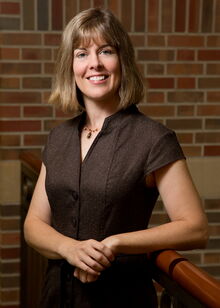
Kara D. Federmeier, professor of psychology, was one of seven Urbana campus faculty members recently named University Scholars. The program recognizes excellence in teaching, scholarship, and service. Federmeier focuses on the critical and under-studied issue of how people use context to perceive and extract meaning from visual information. Her research has explored the impact of aging, context and mood on the extraction of meaning. Among her discoveries is that the brain’s right hemisphere is capable of more sophisticated language processing than previously thought.
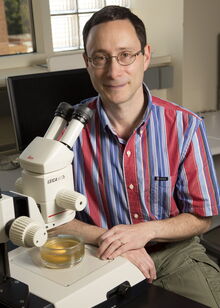
Phillip Newmark, professor of cell and developmental biology, was one of seven Urbana campus faculty members recently named University Scholars. The program recognizes excellence in teaching, scholarship, and service. Newmark recognized that his discipline’s next frontier would be in the biology of tissue and organ regeneration. He now is recognized as one of the foremost proponents of reviving the use of the planaria as a new model organism ideally suited for molecular and genetic analysis of regeneration.
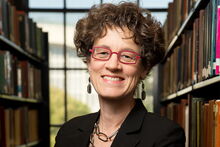
Leslie J. Reagan, professor of history, was one of seven Urbana campus faculty members recently named University Scholars. The program recognizes excellence in teaching, scholarship, and service. Reagan is a leading scholar in modern U.S. history, gender and sexuality studies, legal history and the history of medicine. Her current research is analyzing the transnational effects of chemical warfare, with a focus on Agent Orange in the Vietnam War and its lasting impact on reproductive health.
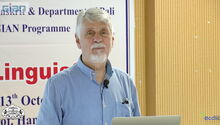
Hans Hock, professor emeritus of linguistics, has been elected a fellow of the Linguistic Society of America. Hock will be recognized in January at the society’s annual meeting in Boston. The society was founded in 1924 to advance the scientific study of language. It is the only umbrella professional linguistics organization in the U.S.
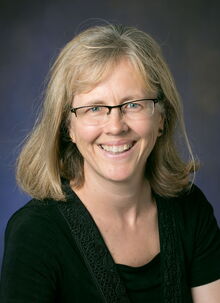
Kristin Hoganson, professor of history, received the 2012 Ray Allen Billington Prize from the Western History Association for her article, “Meat in the Middle: Converging Borderlands in the U.S. Midwest, 1865-1900,” published in the Journal of American History.
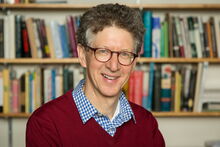
Harry M. Liebersohn, professor of history, has been selected to co-direct Some Institutes for Advanced Study’s 2013 and 2014 summer institutes on “Cultural Cultural Encounters: Global Perspectives and Local Exchanges, 1750-1940.” This postdoctoral summer seminar proposes to examine first encounters between Westerners and non-Westerners from 1750 to 1940.
August 2012
Ryan C. Bailey, professor of chemistry has been named one of the world’s top young innovators by Technology Review, the world’s oldest technology magazine. Bailey’s research interests lie at the interface of bioanalytical and biomaterials chemistry. He was honored for his work with chip-based tests to detect diseases at their earliest stages and then help clinicians choose the best course of personalized treatment.
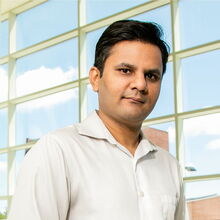
Prashant K. Jain, professor of chemistry has been named one of the world’s top young innovators by Technology Review, the world’s oldest technology magazine. Jain’s research investigates interactions between light and matter. The magazine recognized Jain for his work with quantum dots with tunable optical properties. By tweaking the dots’ chemical composition, Jain can control the wavelengths of light that the dots emit or absorb. This control means that the quantum dots could act as optical switches, key components for computers that could use light instead of electricity to transmit data—at ultra-high speeds.
Vera V. Mainz, former director of the NMR Lab of the School of Chemical Sciences, has been inducted as an American Chemical Society Fellow. The honor is given to distinguished scientists who have demonstrated outstanding accomplishments in chemistry and have made important contributions to ACS, the world’s largest scientific society.
June 2012
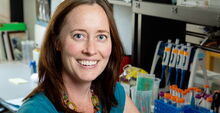
Alison Bell, professor of animal biology, received the Young Investigator Award from the Animal Behavior Society for “remarkable research contributions...and the early training of young scholars” in her laboratory. Bell studies animal behavioral syndromes and their implications. She has made significant contributions to the field by studying the behavioral traits of the three-spined stickleback, a species of fish adapted to diverse habitats.
May 2012
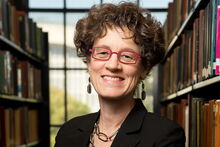
Leslie Reagan, professor of history, received the Arthur J. Viseltear Award for her book Dangerous Pregnancies: Mothers, Disabilities, and Abortion in Modern America. The annual award is given by the Medical Care Section of the American Public Health Association to a historian for outstanding contributions to the history of public health.
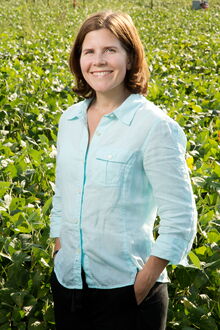
Elizabeth Ainsworth, professor of plant biology, received the Charles Albert Shull Award for her research on current and potential impacts of global and environmental change on both natural and managed plant ecosystems.
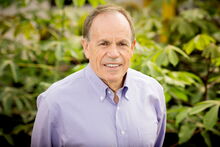
Stephen Long, professor of plant biology, received the Charles F. Kettering Award for his discoveries of the responses of photosynthesis, changes in the physical environment, and the role of photosynthesis in mitigating climate change.
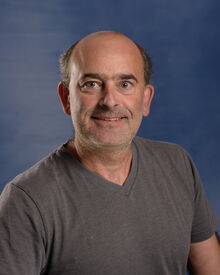
Justin S. Rhodes, professor of psychology, was named a 2012-13 Helen Corley Petit Scholar for his extraordinary academic record. Rhodes’s research explores how genes and environment affect voluntary behavior.
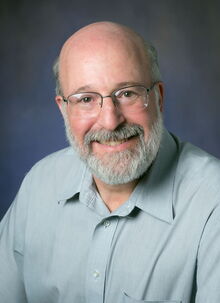
Stephen Marshak, professor of geology and director of the School of Earth, Society, and Environment, received the Campus Award for Excellence in Undergraduate Teaching. He thrives by engaging students in the excitement and mystery of studying Earth. Whether students are assigned to sketch some of the visible geology, traverse rocks, or follow dry creek beds, they have come to appreciate Marshak’s dedication to anchoring conceptual knowledge to experiences inside and outside the classroom.
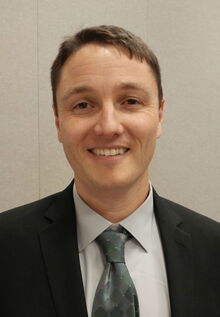
Eric Snodgrass, an instructor in atmospheric sciences, received the Campus Award for Excellence in Undergraduate Teaching. He has “revolutionized” online delivery of large-enrollment courses, and his work has served as a model for instruction across campus. Snodgrass’ innovations in the classroom include the use of multimedia resources, the incorporation of real-world challenge problems and online discussion boards.
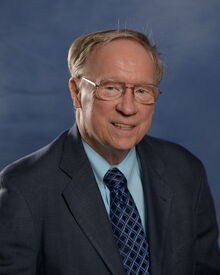
Bruce C. Berndt, a professor of mathematics, received the Campus Award for Excellence in Graduate Student Mentoring. Berndt has mentored many graduate students throughout his career. The 29 students who have earned their degrees under his direction have taken positions at research institutions around the world. He regularly collaborates with former students on publications and projects, an uncommon practice in the field.
April 2012
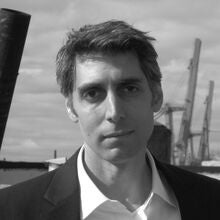
Alex Shakar, professor of English, was named a winner of the Los Angeles Times Book Prize for fiction for Luminarium. Luminarium focuses on the roles of technology and spirituality in shaping people’s reality.
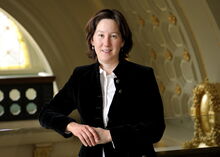
Clare Crowston, professor of history, was chosen as a Collaborative Research Fellow by the American Council of Learned Societies. Crowston’s work focuses on labor history and the history of women and gender. The fellowship program brings together 15 scholars from different institutions, disciplines, and countries whose varied perspectives will yield advances in research.
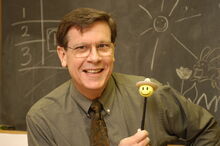
Ed Diener, the Joseph R. Smiley Distinguished Professor of Psychology, was named to the American Academy of Arts and Sciences, one of the oldest honorary societies in the nation whose members also included Albert Einstein, Ralph Waldo Emerson, and Benjamin Franklin. Diener was selected for his pioneering contributions to psychological science. Much of his career has been devoted to measuring well-being and understanding the cultural, personality, and economic factors that influence it.
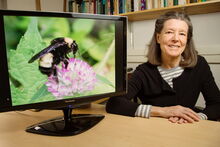
Sydney Cameron, professor of entomology, has been selected for a Fulbright Specialists project in environmental science at the National University of Comahue in Argentina. Cameron will spend three weeks in Argentina, giving undergraduate and graduate lectures and hands-on workshops for graduate students in the genetics curriculum on cutting-edge research in molecular population genetics. She will also give a keynote presentation on South American bumble bee conservation.
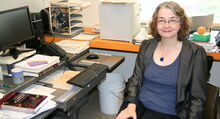
Janice M. Juraska, professor of psychology, was named president-elect of the International Society for Developmental Psychobiology. The society encourages research on the development of behavior in all organisms, including man, with special attention to the effects of biological factors operating at any level of organization.
March 2012
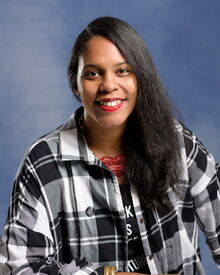
Ruth Nicole Brown, professor of gender and women’s studies, received a 2012 Campus Award for Excellence in Public Engagement. This award recognizes faculty who have consistently applied their knowledge and expertise to issues of societal importance for the public good. Brown is the founder and co-organizer of the Saving Our Lives Hear Our Truth program, an after-school program that uses art-based activities to encourage self- and collective expression.
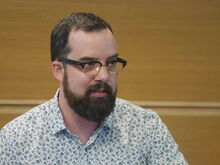
Christian Sandvig, professor of communication, received a 2012 Campus Award for Excellence in Public Engagement. This award recognizes faculty who have consistently applied their knowledge and expertise to issues of societal importance for the public good. Sandvig focuses his public engagement work on understanding the development of new communication infrastructures and their implications on public policy. He has created a long-term collaboration with Tribal Digital Village, an innovative philanthropic and government project to provide high-speed solar-powered Internet to Native lands in California.
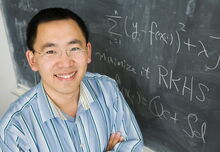
Ping Ma, associate professor of statistics, won the Canadian Journal of Statistics 2011 Best Paper Award for a paper that he coauthored, titled “Nonparametric Regression with Cross-Classified Responses.” Ma’s research focuses on bioinformatics, functional data analysis, and geophysics.
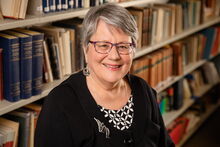
Mara Wade, professor of Germanic languages and literatures, received a three-month fellowship as Senior Fellow des Landes Niedersachsen for research at the Herzog August Bibliothek in Wolfenbüttel, Germany, the leading European research center for literatures and culture before 1800.
February 2012
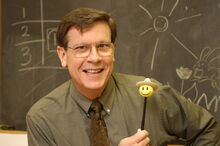
Ed Diener, professor of psychology, won the 2012 American Psychological Association’s Distinguished Scientific Contribution Award. Awardees are chosen for their lifetime achievement in scholarship and research, having made distinguished theoretical or empirical contributions to basic research in psychology.
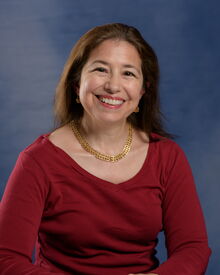
Lisa Lucero, professor of anthropology, was appointed to the American Anthropological Association’s new Task Force on Climate Change. The task force was created to bring anthropology’s contributions to issues of environmental concern into the spotlight. Lucero will promote and develop anthropological contributions to climate change-related issues with eight other members of the task force.
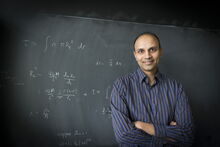
Neal Dalal, assistant professor of astronomy, has been awarded a Sloan Research Fellowship, which is given to early-career scientists and scholars whose achievements and potential identify them as the next generation of scientific leaders. Dalal’s research investigates some of the most fundamental problems in cosmology. His recent work has focused on structures called dark matter halos, which are objects that harbor all of the stars and galaxies observed in the universe.
Sheng Zhong, an assistant professor in the School of Molecular and Cellular Biology, has been awarded a Sloan Research Fellowship, which is given to early-career scientists and scholars whose achievements and potential identify them as the next generation of scientific leaders. Zhong researches causal relationships between gene regulation, cell differentiation, and cancer. His lab pioneered in systems biology modeling, stem-cell engineering, and single-cell technologies. Zhong is an associate professor of bioengineering, biophysics, and neuroscience. He is also affiliated with the Departments of Computer Science, Statistics, and Cell and Developmental Biology.
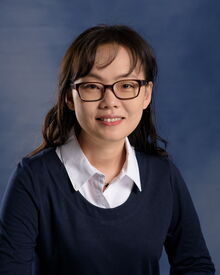
Vera Hur, assistant professor of mathematics, has been awarded a Sloan Research Fellowship, which is given to early-career scientists and scholars whose achievements and potential identify them as the next generation of scientific leaders. Hur’s research focuses on the analysis of nonlinear partial differential equations which arises in physical contexts. In particular, she is interested in mathematical aspects of surface water waves and related moving boundary problems.
January 2012
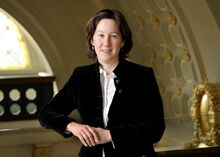
Clare Crowston, professor of history, has been awarded an ACLS Collaborative Research Fellowship to support her project, Learning How: Apprenticeship in France, 1675-1830, for 24 months beginning July 2012.
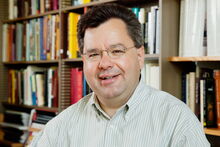
Craig Koslofsky, professor of history, was named the winner of this year’s Longman-History Today Book of the Year Award for his book Evening’s Empire: A History of the Night in Early Modern Europe. The award goes to the best first or second history book, as determined by a panel of judges. The judges described the book as “methodologically bold and brilliantly original,” according to History Today.
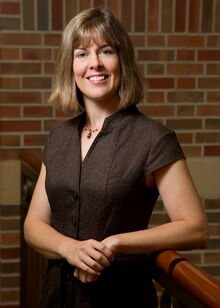
Kara D. Federmeier, professor of psychology, has been elected a fellow of the Association for Psychological Science. Fellow status is awarded to APS members who have made sustained outstanding contributions to the science of psychology in the areas of research, teaching, service, and/or application.
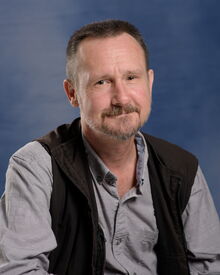
John E. Hummel, professor of psychology, has been elected a fellow of the Association for Psychological Science. Fellow status is awarded to APS members who have made sustained outstanding contributions to the science of psychology in the areas of research, teaching, service, and/or application.
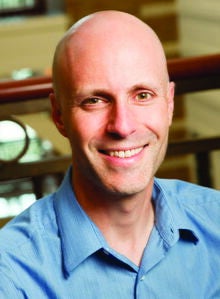
Daniel J. Simons, professor of psychology, has been elected a fellow of the Association for Psychological Science. Fellow status is awarded to APS members who have made sustained outstanding contributions to the science of psychology in the areas of research, teaching, service, and/or application.
December 2011
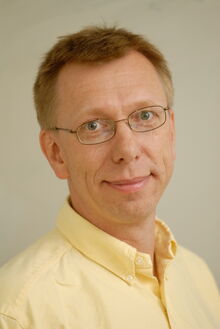
Wilfred van der Donk, the Richard E. Heckert Endowed Chair in Chemistry, has been elected a fellow in the American Association for the Advancement of Science. Van der Donk was recognized for pioneering contributions to the discovery of natural products and the elaboration of their biosynthesis.
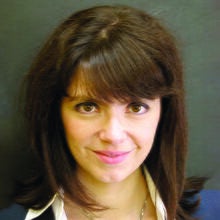
M. Christina White, professor of chemistry, has been elected a fellow in the American Association for the Advancement of Science. White was honored for discoveries of novel, highly useful catalytic methods for oxidative functionalization of aliphatic and allylic C-H bonds and delineation of predictable rules for reaction selectivities.
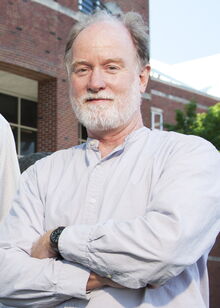
James Whitfield, professor of entomology, has been elected a fellow in the American Association for the Advancement of Science. Whitfield was chosen for groundbreaking contributions toward understanding the evolution, diversification, and classification of the hyperdiverse parasitic Hymenoptera and their mutualistic polydnaviruses.
November 2011
Ronald P. Toby, professor of East Asian languages and cultures and history, received the 2011 National Institutes for the Humanities Prize in Japanese Studies for outstanding contributions to Japanese studies by a foreign scholar. Toby is recognized for his research in the history of early modern Japanese foreign relations and for his accomplishments in the advancement and promotion of Japanese studies abroad.
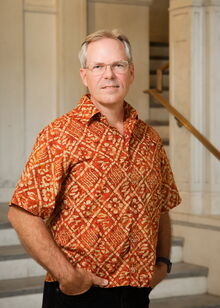
Chris Fennell, associate professor of anthropology, has been elected to the board of directors of the Society for Historical Archaeology for a term of three years staring January 2012. He is also the founding editor of the new peer-review Journal of African Diaspora Archaeology and Heritage.
Ellen Moodie, professor of anthropology, received the Ruth Benedict Global Citizenship Award for the Center for a Public Anthropology. This award recognizes Moodie’s participation in the center's Community Action Online Project as well as other public outreach activities.
October 2011
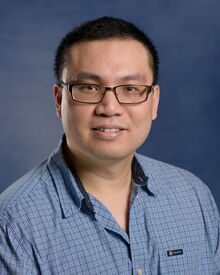
Alex Yong, assistant professor of mathematics, has won (with his co-author Hugh Thomas) the Canadian Math Society’s G. de B. Robinson award for the best paper in the Canadian Mathematical Bulletin in 2009 and 2010. Their paper was titled “Multiplicity-Free Schubert Calculus.”
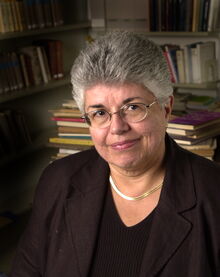
Marianne Kalinke, emeritus professor of Germanic languages and literatures, will receive an honorary doctorate from the University of Iceland in December for her productive research and publications on medieval Icelandic literature, which has furthered and stimulated research on older Icelandic literature, and for having supported international relations at the University of Iceland in the field of medieval studies.
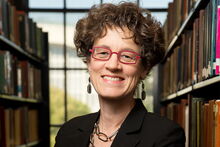
Leslie Reagan, professor of history, has won the 2011 Joan Kelly Prize for her book, Dangerous Pregnancies: Mothers, Disabilities, and Abortion in Modern America (University of California Press, 2010). Established in 1984, this prize is awarded annually for the book in women’s history and/or feminist theory that best reflects the high intellectual and scholarly ideals exemplified by the life and work of Joan Kelly (1928-82).
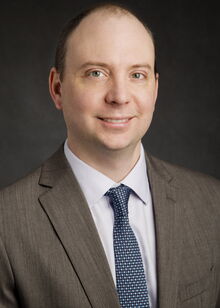
Charles Schroeder, professor of chemical and biomolecular engineering, has been named a Packard Fellow in science and engineering for his work with fluorescent probes for ultra-high-resolution imaging. The fellowship from the David and Lucille Packard Foundation includes an unrestricted five-year, $875,000 award to support creative research. Schroeder’s award will fund the use of the new probes to study retroviruses and bacterial gene expression.
Steven C. Huber, professor of plant biology, was elected the president of the American Society of Plant Biologists for 2012. Huber’s research focuses on the role of protein phosphorylation in enzyme regulation.
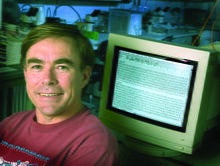
Hugh M. Robertson, professor of entomology, was honored with a Certificate of Distinction by the Council of the International Congress of Entomology for his contributions to the field. Robertson is known for his research on insect genetics and for his role in insect genome projects.
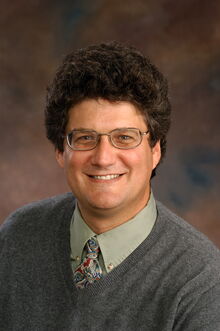
Jonathan V. Sweedler, professor of chemistry, was appointed the editor-in-chief of Analytical Chemistry, a journal published by the American Chemical Society.
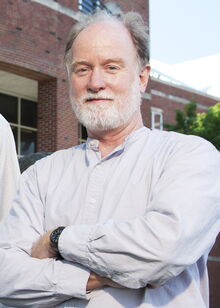
James B. Whitfield, professor of entomology, was honored with the Thomas Say Award from the Entomological Foundation. This award recognizes significant and outstanding work in the fields of insect systematics, morphology, or evolution. Whitfield’s research focuses on the systematics and ecology of parasitoid wasps.